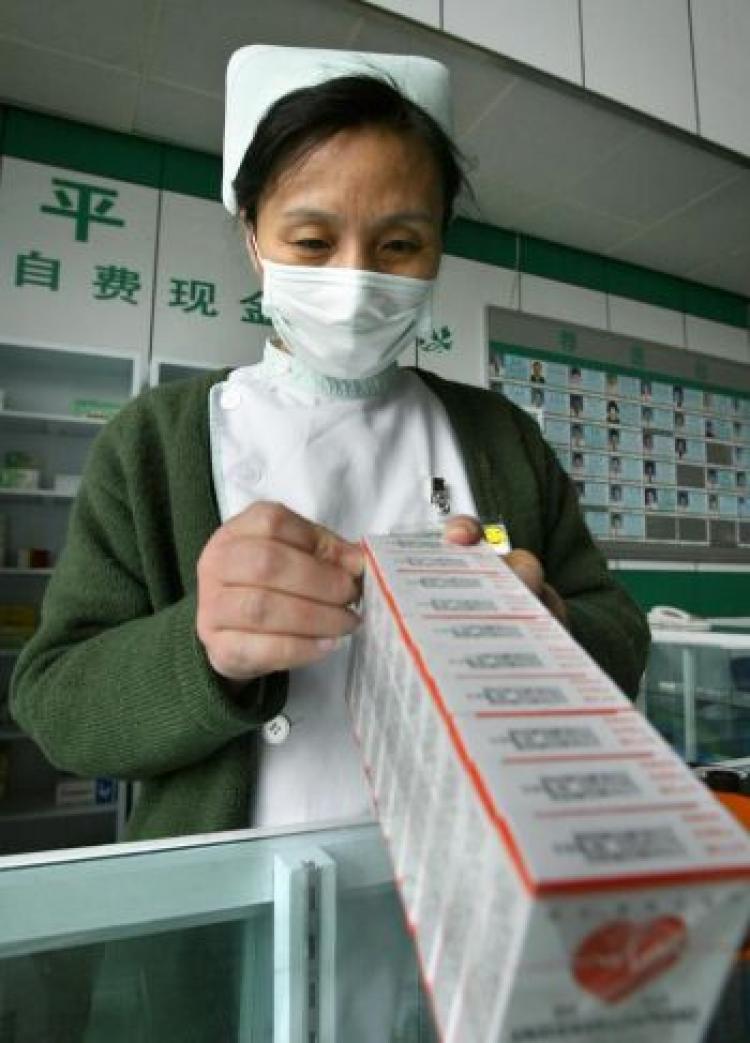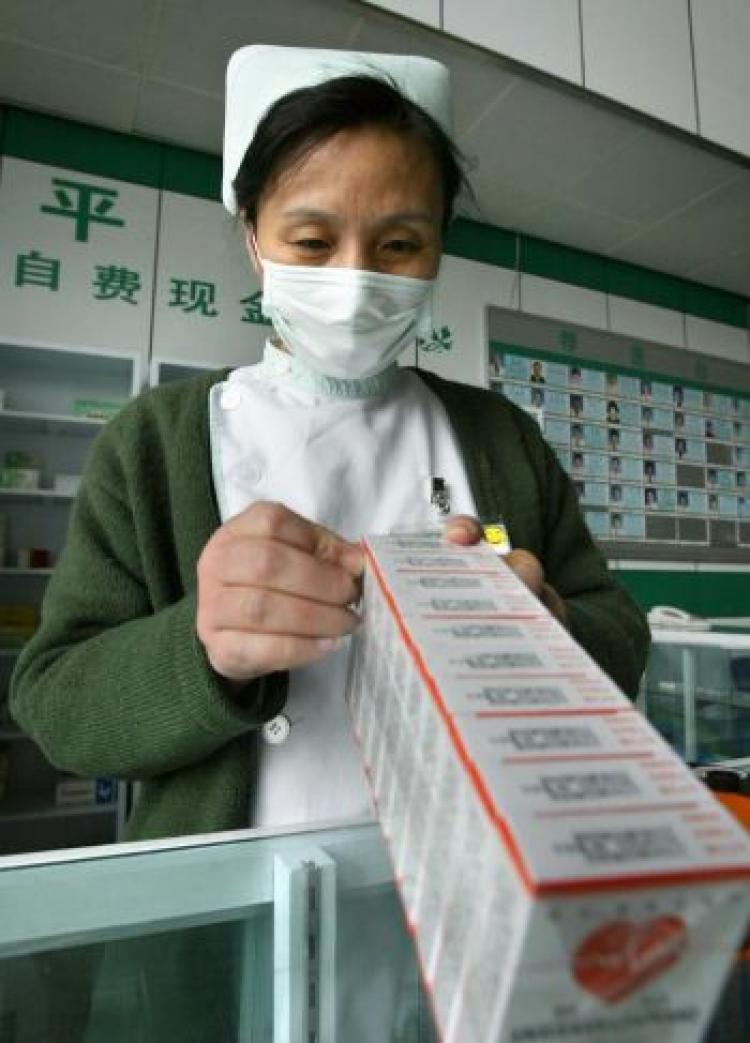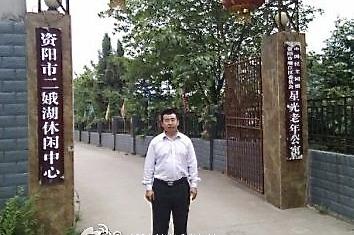While counterfeit pharmaceuticals have been prevalent in China for many years, China’s food and drug regulatory system has once again drawn attention to itself with the recent discovery that large amounts of fake anti-cancer drugs are flooding the market.
Chinese authorities announced on June 12 that a Chinese-American person with a surname of Ding, along with three accomplices, had been arrested for manufacturing and selling fake anti-cancer drugs valued at US$4.4 million.
Ding is said to have produced the fake drugs—labeled as imported prescription medications—in underground facilities.
Ding, 47, became an American citizen in 2003 after completing his postdoctoral studies abroad. He started selling counterfeit drugs in 2008, while serving as a general manager of a Hangzhou-based biopharmaceutical company.
The counterfeits were sold through the Internet at one-tenth the price of the genuine products, which average around US$3,000 per bottle. The bogus anti-cancer drugs had been sold throughout at least eight provinces.
The major counterfeited brands included Norvatis’ leukemia drug Gleevec, Bayer’s kidney cancer drug Nexavar, Astrazeneca’s lung cancer drug Iressa, and Genentech’s lung cancer drug Tarceva.
There is speculation that Ding’s counterfeits account for only a small portion of the fake cancer drugs manufactured and sold in China and abroad.
A spokeswoman for the Shanghai branch of the U.S.-based SciClone Pharmaceutical International drug company said that more than 20 percent of the company’s anti-cancer drug Thymosin Alpha-1 is counterfeit in the Chinese market, according to a May 26 report by China’s Southern Weekly. She added that counterfeits were found in government-owned drug stores.
Among those that have been victimized by the counterfeits is Nanjing resident Geng, who spent thousands of dollars on Thymosin before realizing that the medication was having no effect. Geng purchased his medication from a state-certified drug store, Xinte.
Tests conducted on the medication concluded the lot was counterfeit. Two members of Geng’s family who also took the counterfeit drug have since passed away.
The same store’s stock supply of Alimta was also proven to be counterfeit by tests conducted by the brand’s manufacturer, Lilly LLC.
Although pharmaceutical companies have reported these issues to China’s State Food and Drug Administration (SFDA), the agency has a history of being lenient on distributors of the fake drug products.
The SciClone Pharmaceutical spokeswoman said she traveled to Nanjing for the Xinte drugstore case. The company issued a written testimony against the distributor of the bogus medication, but the local SFDA witnesses claimed that the samples collected from the drugstore were, in fact, authentic.
Shortly afterward, the drugstore’s license—which had been revoked—was reinstated, after the wife of the former store owner registered for a new license and subsequently reopened the store. Her husband has not been indicted or punished.
Eight different pharmaceutical companies, including SciClone Pharmaceutical and Lilly, have consulted with Nanjing SFDA officials and also reported the case to higher authorities.
Former head of the SFDA Zheng Xiaoyu was executed in 2007 after being accused by the state of taking bribes to license bogus drugs.
Chinese citizens have been quick to point the finger at the corruption and inertia of the drug regulatory authorities.
“The SFDA cares only about money,” said a local resident, who asked not to be identified. “[They think] cancer patients are doomed to die, with or without the medicine. Common folk like us can’t afford expensive medicines, so we can only wait for our end. We will either be killed by the fake drugs, or by the disease.”
The World Health Organization estimates that 10 percent of the pharmaceutical drugs in circulation worldwide are bogus, with China being the biggest contributor of the counterfeits.
Chinese authorities announced on June 12 that a Chinese-American person with a surname of Ding, along with three accomplices, had been arrested for manufacturing and selling fake anti-cancer drugs valued at US$4.4 million.
Ding is said to have produced the fake drugs—labeled as imported prescription medications—in underground facilities.
Ding, 47, became an American citizen in 2003 after completing his postdoctoral studies abroad. He started selling counterfeit drugs in 2008, while serving as a general manager of a Hangzhou-based biopharmaceutical company.
The counterfeits were sold through the Internet at one-tenth the price of the genuine products, which average around US$3,000 per bottle. The bogus anti-cancer drugs had been sold throughout at least eight provinces.
The major counterfeited brands included Norvatis’ leukemia drug Gleevec, Bayer’s kidney cancer drug Nexavar, Astrazeneca’s lung cancer drug Iressa, and Genentech’s lung cancer drug Tarceva.
There is speculation that Ding’s counterfeits account for only a small portion of the fake cancer drugs manufactured and sold in China and abroad.
A spokeswoman for the Shanghai branch of the U.S.-based SciClone Pharmaceutical International drug company said that more than 20 percent of the company’s anti-cancer drug Thymosin Alpha-1 is counterfeit in the Chinese market, according to a May 26 report by China’s Southern Weekly. She added that counterfeits were found in government-owned drug stores.
Dangerous Fakes
Among those that have been victimized by the counterfeits is Nanjing resident Geng, who spent thousands of dollars on Thymosin before realizing that the medication was having no effect. Geng purchased his medication from a state-certified drug store, Xinte.
Tests conducted on the medication concluded the lot was counterfeit. Two members of Geng’s family who also took the counterfeit drug have since passed away.
The same store’s stock supply of Alimta was also proven to be counterfeit by tests conducted by the brand’s manufacturer, Lilly LLC.
Although pharmaceutical companies have reported these issues to China’s State Food and Drug Administration (SFDA), the agency has a history of being lenient on distributors of the fake drug products.
Deep Corruption
The SciClone Pharmaceutical spokeswoman said she traveled to Nanjing for the Xinte drugstore case. The company issued a written testimony against the distributor of the bogus medication, but the local SFDA witnesses claimed that the samples collected from the drugstore were, in fact, authentic.
Shortly afterward, the drugstore’s license—which had been revoked—was reinstated, after the wife of the former store owner registered for a new license and subsequently reopened the store. Her husband has not been indicted or punished.
Eight different pharmaceutical companies, including SciClone Pharmaceutical and Lilly, have consulted with Nanjing SFDA officials and also reported the case to higher authorities.
Former head of the SFDA Zheng Xiaoyu was executed in 2007 after being accused by the state of taking bribes to license bogus drugs.
Chinese citizens have been quick to point the finger at the corruption and inertia of the drug regulatory authorities.
“The SFDA cares only about money,” said a local resident, who asked not to be identified. “[They think] cancer patients are doomed to die, with or without the medicine. Common folk like us can’t afford expensive medicines, so we can only wait for our end. We will either be killed by the fake drugs, or by the disease.”
The World Health Organization estimates that 10 percent of the pharmaceutical drugs in circulation worldwide are bogus, with China being the biggest contributor of the counterfeits.





